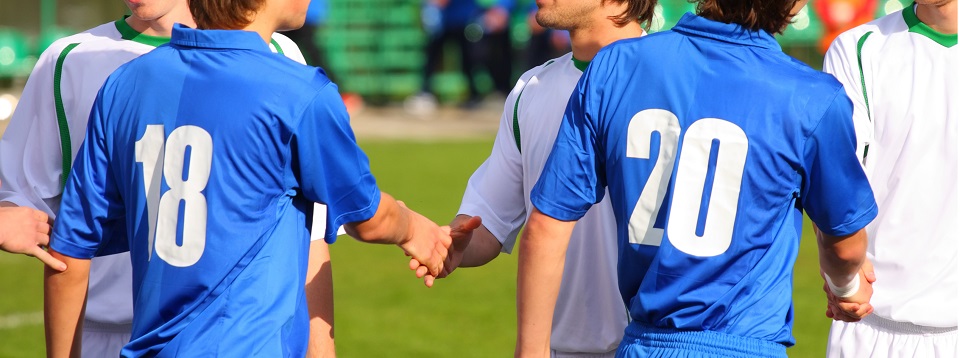July 2017
We all experience personal tragedy from time to time: the loss of a parent, the death of someone else close to us, perhaps a house fire or an accident that results in disability. At times like these, those around us – our communities – play an important supportive role. For many of us, our local sporting club IS our community.
Michelle Hanley, Risk Manager and State Member Protection Officer at Football NSW, provides direct support for clubs experiencing a crisis or tragedy in their ranks.
“People who volunteer for their local sports club generally have a very strong community spirit and respond in a very positive and caring way when terrible things happen.
“Still, most volunteers who put their hand up to help out at club level don’t ever expect to be in that situation. It can come as quite a shock to realise the club and its members have a role to play in the bad times as well as the good,” said Hanley.
Thankfully, explained Hanley, these types of incidents are rare but it doesn’t mean we shouldn’t plan and prepare for them.
So, how important is a sporting club to a person dealing with loss and personal tragedy? How can a sports club help a member or members to successfully weather a crisis? What does a club have to offer and how do we plan for such events?
Here’s a list of ideas that may help you and others in your club to better help others:
Who is likely to be affected?
Sometimes the answer to this question is obvious. Generally it’s those closest to the event or person who feel the greatest loss. However, even someone not directly associated with the tragedy may feel an acute sense of loss because the event resonates with their life experiences. Look around you and take the time to think about all the members of your club. What about the younger people and children, those who may struggle to understand exactly what’s going on or those who are already vulnerable? Tragedy often has a ripple effect. Try to identify those closest to the centre and devise strategies with them in mind.
What if the tragedy affects the whole club?
Sport is about health, fitness, competition, friendship and fun. But bad things happen to clubs too, from car crashes and bus accidents to natural disasters and youth suicide. Incidents like these can have a devastating and long-lasting effect on everyone and the club’s response can play an important role in helping people to cope and to heal. Administrators may be required to step up and coordinate at a time when they themselves are grieving or in shock. It’s advisable to get the advice of a professional with experience in this field. Get in contact with your State or National Sport Organisation as well as the sport’s Member Protection Information Officer. They should be able to provide some very practical assistance and support.
Grief affects everyone differently but talking is key. Provide a place for people to gather and talk. Identify senior members of the club who can be available at any time to just listen and give comfort. Provide plenty of opportunities for those who aren’t comfortable talking to do just that. Make sure friendship, support and counselling are easily available to those who reach out. Grief can sometimes go unnoticed so keep your eyes and ears open. Look for people who aren’t there and seek out those who may be most affected.
It’s time to organise
Tragedy is disruptive. Lives are upended, families are left floundering. Often those involved are in shock or grieving or may even be hurt themselves. Amidst all this, there is so much to do. Someone may have to organise a funeral, find a place to live, organise transport, cook dinner, feed pets or get the kids to school. Tragedies often come with administrative tasks while the day-to-day jobs still demand attention.
What do clubs do best? Organise. How can you employ the club’s best talents and resources to help in a direct and meaningful way? Perhaps the club can set up a roster for cleaning, cooking and other daily tasks, create a website where people can make donations, organise temporary accommodation, take the lead on organising a funeral or simply allocate someone as the central point of communication.
Give people information
Club members will want to know what’s going on, a desire that stems from a genuine place of concern and sadness. A club can play a vital role in disseminating that information, thereby silencing the inevitable rumour mill. Without breaking confidentiality and with the permission of those involved, tell people as much as you can and facilitate an avenue for people to send letters of support.
Plan
It may seem macabre to plan for tragedy but it will help your club to respond in a professional, timely and effective manner when things go wrong.
Think through possible scenarios then develop an Emergency Plan detailing what needs to be done and in what order.
What procedures would need to be put in place immediately? What resources do you have? What services would you need to find? Who in your club has the right skills and experiences? Who will deal with media? Who will contact family, parents, guardians, next of kin? Make a list of relevant people and their contact details. Keep your plans in a safe, accessible place and make sure members know about them.
Links
Emergency Planning for Sporting Clubs by Sports Medicine Australia.
Organisations like
Relationships Australia can supply counsellors for support meetings and one-on-one sessions in crisis situations.

